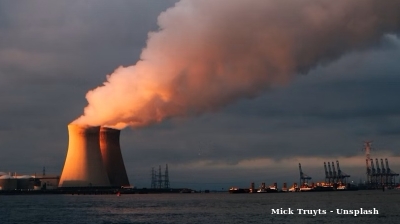India’s ambitious drive to modernise its power distribution network through the Revamped Distribution Sector Scheme (RDSS) is facing mounting pressures, with delays in installing smart meters and slow payment cycles threatening to erode project returns for advanced metering infrastructure service providers (AMISPs).
According to a report by Crisil Ratings, a combination of deferred execution and protracted payment realisation could reduce the internal rate of return (IRR) for these projects by as much as 150 basis points, weighing on the credit profiles of key players in the sector.
At the core of the challenge is a slippage in the pace of installation across RDSS-sanctioned projects. Crisil’s analysis assumes execution delays of six to twelve months against planned schedules, along with payment cycles stretching to six months—compared with the original expectation of settlement within a month. If such conditions persist through the 10-year contract period of these projects, the financial impact on AMISPs could be material. Crisil’s study covers companies responsible for more than 60% of all smart meter projects awarded to date, making its findings a broad reflection of current industry dynamics.
The Smart Meter National Programme (SMNP), which aims to replace 250mn conventional electricity meters with prepaid smart meters by March 2026, forms the backbone of this transition. Under the scheme, distribution companies (discoms) award 10-year contracts to AMISPs, who procure and install meters within 24–30 months and subsequently provide operation and maintenance services. In return, AMISPs receive an upfront lump-sum payment from discoms for partial capital recovery, followed by fixed monthly payments for each meter over the contract’s remaining life.
However, the programme’s rollout has lagged significantly behind expectations. As of July 2025, only 25.6mn of the 123mn awarded meters had been installed—barely 21% progress. Had installations proceeded on schedule, the figure should have been closer to 60mn, according to Crisil’s estimates. The shortfall reflects a combination of persistent ground-level constraints, including delays in securing right of way, limited public awareness and acceptance of smart meters, operational hurdles on the part of AMISPs and deferred inspections by discoms, which slow commissioning approvals.
Ankit Hakhu, Director at Crisil Ratings, notes that slower installation directly affects the timing and value of project cash flows. A delay in meter rollout typically leads to a deferral or withholding of both recurring payments and upfront dues from discoms. This lowers the net present value of future inflows and, as per Crisil’s findings, could reduce project IRRs by up to 60 basis points. Even before accounting for other financial pressures, this alone presents a significant strain for AMISPs that operate on thin contractual margins.
Cost pressures add another layer of concern. Delays lengthen exposure to price fluctuations in hardware components, particularly printed circuit boards and semiconductors, which constitute the core of smart meters and are largely imported. Though global supply chains are currently stable, and AMISPs have attempted to mitigate risk through bulk purchases and staggered procurement, any sudden disruption or a sharp depreciation of the rupee against the US dollar could escalate project costs. Higher capital expenditure, in turn, would further compress returns at a time when cash flows are already under pressure.
The payment cycle presents a more immediate and systemic challenge. The RDSS framework envisaged near-automatic payments via the Direct Debit Facility, where discoms would deposit consumer revenues into designated accounts from which AMISPs would receive dues within five working days. This structure was intended to shield AMISPs from the long-standing financial vulnerabilities of state discoms.
In practice, however, reliance on discoms for payment clearance persists, and receivable days have stretched dramatically. Ankush Tyagi, Associate Director at Crisil Ratings, notes that many AMISPs now face payment delays ranging from 90 to 180 days. This elongation inflates working capital requirements, and the associated interest costs can erode project IRRs by an additional 90 basis points if left unaddressed. Taken together with installation delays, the cumulative impact could reduce IRRs by up to 150 basis points, undermining the viability of ongoing and forthcoming projects.
Despite these concerns, several factors continue to cushion the credit risk for AMISPs. The modular nature of smart meter deployment—wherein projects operate on a plug-and-play model—helps mitigate risk by enabling partial commissioning and revenue generation once 5% of meters are installed and approved. This allows cash flows to build gradually alongside staggered debt drawdowns, reducing exposure to large upfront capital requirements. In addition, AMISPs benefit from strong sponsor backing, which provides liquidity support during cash flow mismatches, and contract terms that allow them to charge interest on overdue payments.
Even so, the long-term financial health of the sector hinges on timely corrective action. Addressing implementation bottlenecks—ranging from right-of-way approvals to consumer outreach—and fixing payment inefficiencies will be crucial in preserving project returns and sustaining investor confidence. Unless resolution exceeds baseline expectations, the combined impact of execution delays and stretched receivables could reshape the risk landscape for AMISPs and slow India’s broader smart metering transition at a critical moment in the country’s power sector reform agenda.
bneGREEN

Asian utilities locked into coal as long-term contracts slow transition
Asia’s shift towards cleaner energy is being hampered by decades-long coal power agreements that continue to bind utilities to fossil-fuel generation, even at times when cheaper renewable supplies are readily available.

Greek PPC plans €3bn investments in Romania over next three years
PPC is already Romania's largest investor in renewable energy with about 1.3GW of capacity.

Iranian dam effectively shut down due to ongoing drought
One of the major dams feeding the Iranian capital's water has reached the dead storage level and unless significant rainfall arrives in the upper catchment this month, even limited withdrawals will soon become impossible.

Feasibility study for diversion of Siberian river to Central Asia reportedly in works
What’s the purpose? Who’s the beneficiary?
_1763390880.jpg)



